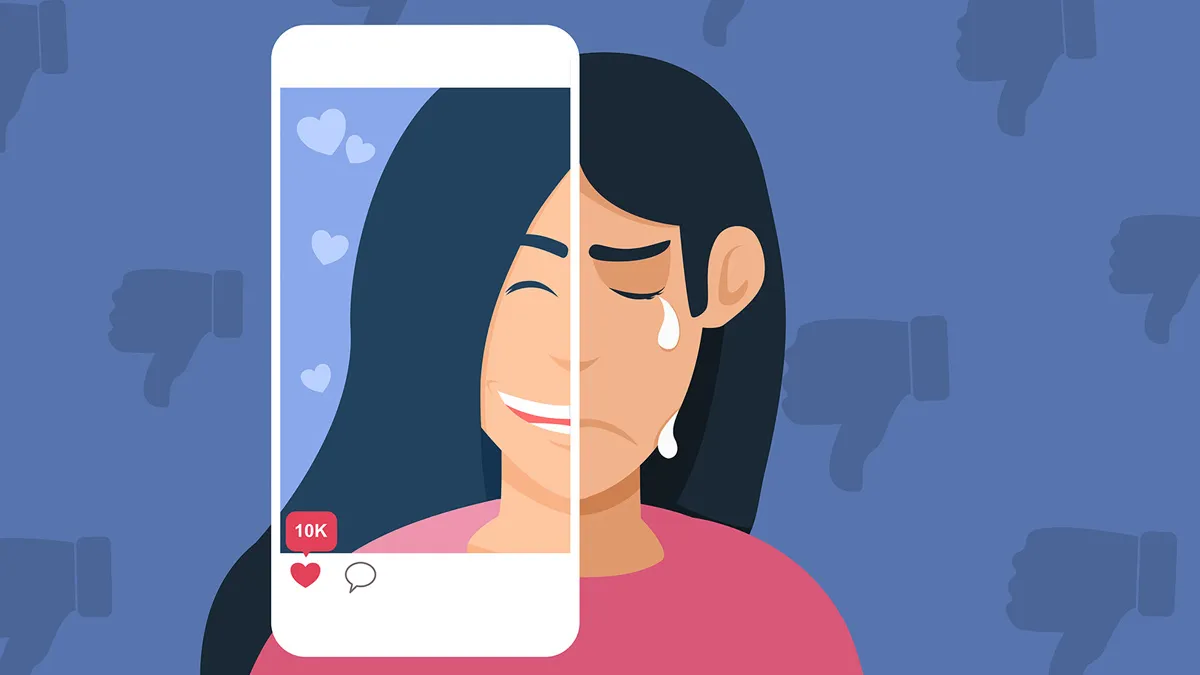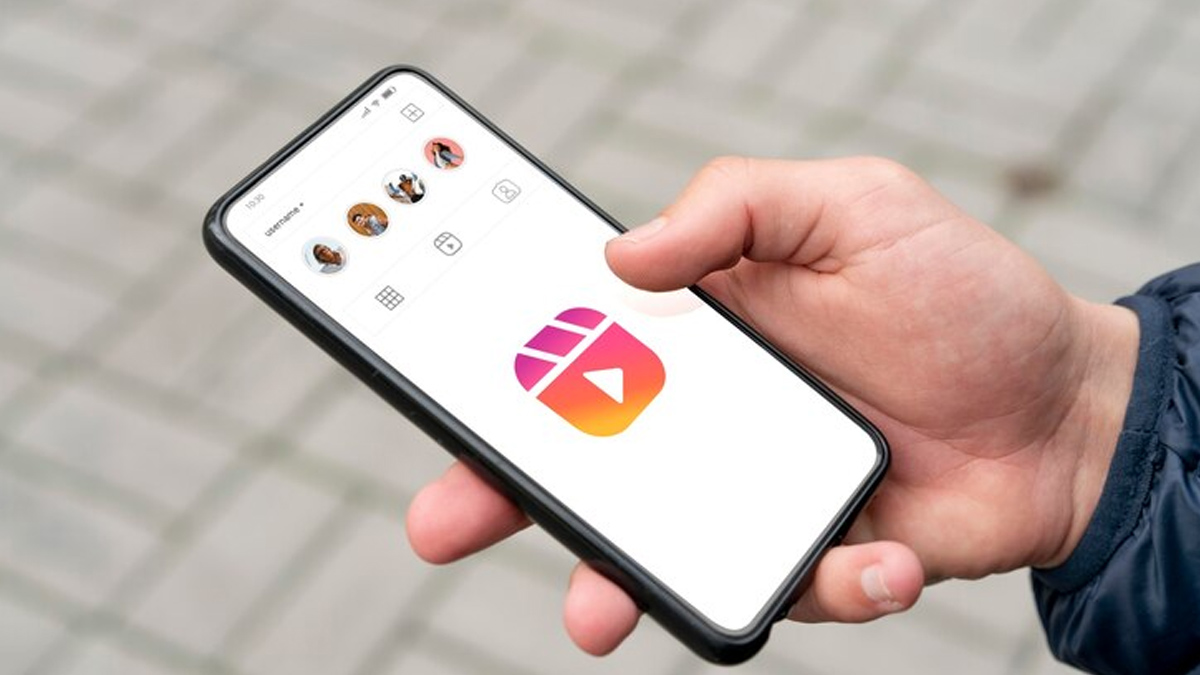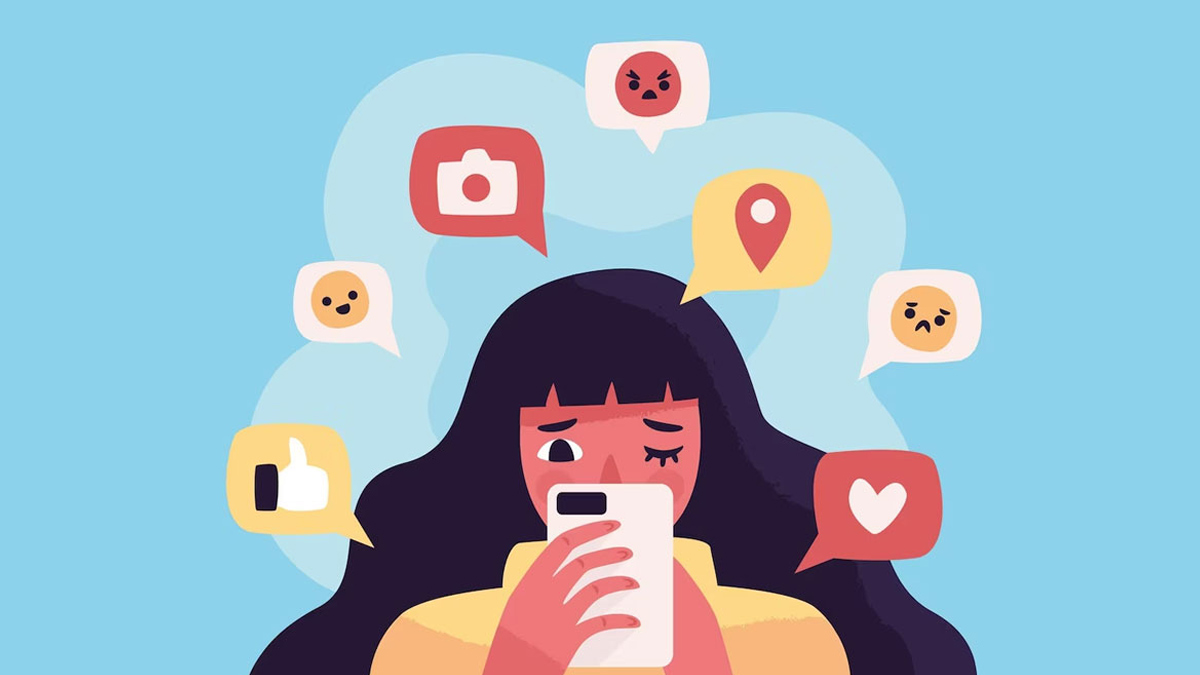
In a world where people scroll before they speak, most of us consume more content in a single day than earlier generations did in a week. From 30 second recipes and pet videos to skincare hacks and fitness routines, Instagram has evolved into a one-stop destination for quick information and entertainment. Additionally, mental health advice has also become part of this daily content diet recently. With relatable therapy reels, self-help snippets, and emotional wellness tips flooding our feeds, it's easy to feel guided, and healed, by what we see online.
Table of Content:-
CHECK YOUR
MENTAL HEALTH

However, can mental health advice on Instagram be trusted? We spoke to our expert, Dr Devanshi Desai, Counselling Psychologist, Mumbai who shared valuable insights on the benefits and risks, and how to engage with therapy content responsibly. Read ahead to find out everything she shared with us.
Why Young Users Trust Mental Health Advice From Social Media
According to Dr Desai, young people are using Instagram for their mental health information because it's accessible. "It's available 24/7, it feels non-judgmental, and it doesn't expect anything from you," she said. And, therapy reels have become a safe space beacuse they are stigma-free and packed with creators who speak with ease about emotions that were once considered taboo.
Another major reason is the language itself. The language of traditional therapy is clinical or heavy. But Instagram creators break these concepts down into light, easily digestible messages such as, "You're not overreacting," "Your feelings are valid," or "Read this if you're dealing with burnout." These bite-sized reassurances helps the users who may be feeling misunderstood at home or overwhelmed by academic and career pressures.
Also Read: Can Drinking Collagen Water Really Improve Your Skin? Expert Shares

Lastly, therapy is expensive. With the rising cost of therapies, long waiting lists, and reluctance in seeking professional help, Instagram becomes an easy first stop. "For many young users, online content acts as an informal entry point to understanding mental health, " Dr Desai shared.
Benefits of Relying On Instagram for Better Mental Health
Despite the concerns around social media therapy, Dr Desai explained that the digital mental health has various meaningful benefits:
1. Increased Awareness
The therapy reels simplify complex psychological concepts so that users can identify symptoms they had no idea existed, such as high-functioning anxiety, emotional burnout, people-pleasing, and attachment styles. Such awareness often motivates people to explore their mental well-being further.
2. Relatability Through Shared Experiences
Platforms like Instagram are built on relatability. When creators speak about panic attacks, breakups, or loneliness, it normalises the emotional struggles that so many face. To witness someone else putting words to the feelings inside your head seems validating and comforting.
3. Reduced Stigma Around Therapy
Dr Desai pointed out that through social media, therapy has been normalised. A decade ago, mental health conversations were hushed and considered a taboo. However, today they're mainstream, and frequently talked about by our favourite influencers, psychologists, and even celebrities. This makes more people open to seeking help without shame.
4. Emotional First-Aid in Difficult Moments
While Instagram won't replace therapy, soothing posts can be a help in stressful moments. A technique shared in a reel or a practical tip for anxiety-breathing may make a person feel better in the moment.

Risks of Relying On Instagram for Better Mental Health
As beneficial as these platforms can be there are real dangers in relying too heavily on therapy content online.
1. Over-Simplyfing Important Topics
Complex disorders, including PTSD, depression, or OCD, can't be explained, or treated, within 30-second reels. Overly simplified content leads to users self-diagnosing, misunderstanding symptoms, or ignoring warning signs that call for professional intervention.
2. Misinformation From Unqualified Creators
"Not all mental health creators online are trained professionals," warned Dr Desai. Many popular pages are run by influencers without any academic background in psychology. Their advice can be relatable but it may also be incorrect or damaging.
3. Quick-Fix Culture on the Rise
Instagram is encouraging instant solutions, for example, "three ways to heal," "five hacks to manage anxiety." However, mental healing is a long process and requires structured guidance. Dependence on quick reels can create unrealistic expectations of recovery.
How to Safely Engage With Therapy Content Online
Therefore, mindful consumption of therapy content oneline is necessary for a balanced mind and health. Here are some tips that you can try:
- Prefer content from licensed therapists, psychologists, or other licensed mental health professionals as they give evidence-based advice and point out the limitations of their posts.
- Use Instagram as a starting point, not the solution. If a reel truly resonates deeply, it's likely a sign you may want to speak with a professional.
- You should never start labeling your behaviours according to content online. Diagnosis should be done by a trained clinician who knows your history and context.
- Journaling, therapy sessions, mindfulness routine practices, and conversations with close people around you are important. Online advice works only when complemented by real-world action.
- If watching therapy reels makes you anxious or overwhelmed, consume less. Curate your feed intentionally, mute accounts that trigger stress, follow creators who promote balance.
Bottomline
Instagram can be an amazing place for learning, relating, and feeling seen, however, it is not a replacement for actual therapy. Reels about mental health can be great for awareness, not for treatment. Use them wisely, stay mindful of the risks, and do not hesitate to seek professional help when needed.
Also watch this video
FAQ
1. Can Instagram therapy reels replace professional counselling?
No, they can create awareness but cannot diagnose, treat, or replace personalised therapy.2. How do I know whether a mental health creator is credible?
Check for academic qualifications, licensing details, and if their content is based on evidence-based practices.3. Is too much mental health content consumed online harmful?
Excessive consumption may overwhelm, leading to self-diagnosis and anxiety. It's about setting healthy boundaries and being engaged mindfully.
How we keep this article up to date:
We work with experts and keep a close eye on the latest in health and wellness. Whenever there is a new research or helpful information, we update our articles with accurate and useful advice.
Current Version
Nov 20, 2025 13:48 IST
Published By : Tanya Srivastava